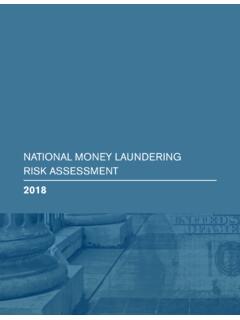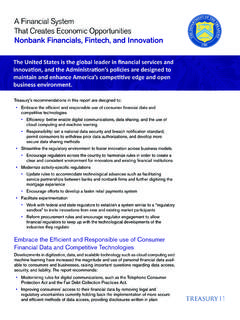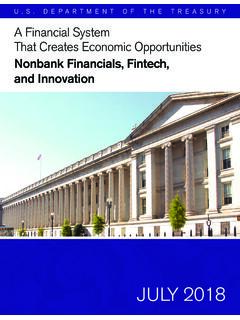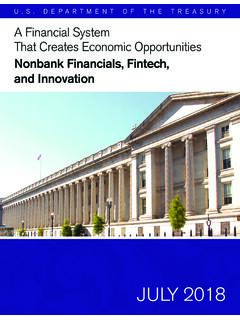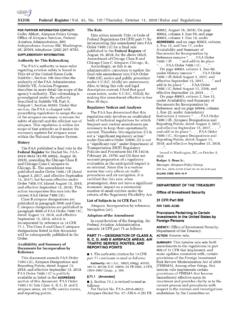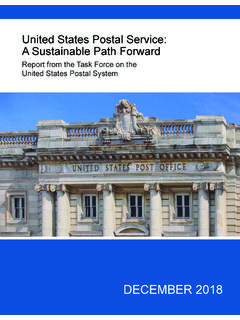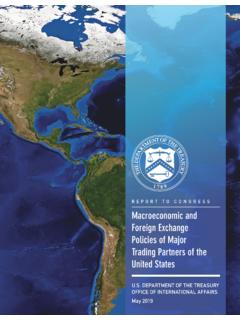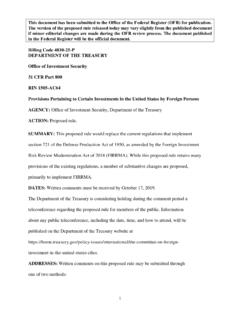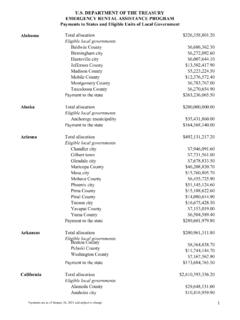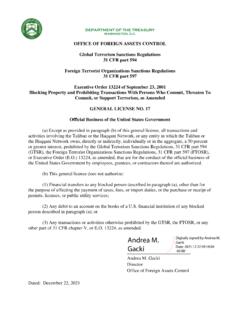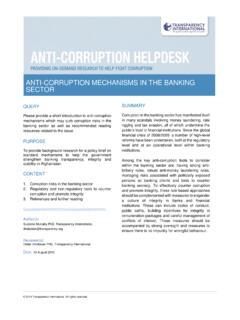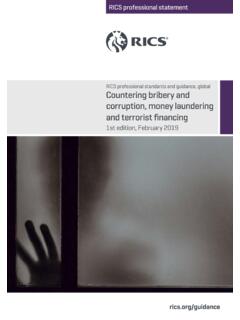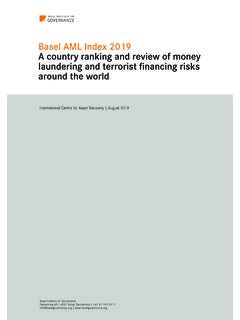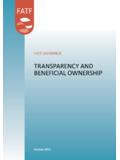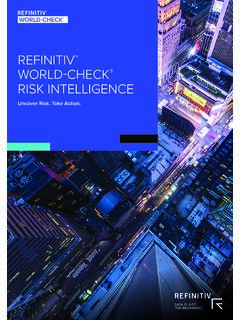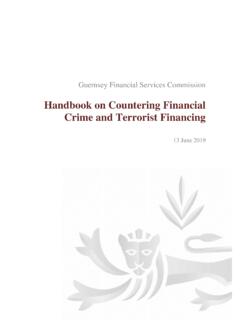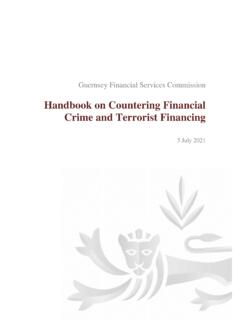Transcription of Cambodia Business Advisory on High-Risk Investments and ...
1 1 Cambodia Business Advisory on High-Risk Investments and Interactions Issued: NOV 10, 2021 Title: Considerations for Companies and Organizations that Conduct Business in Cambodia within Key Sectors or in Partnership with High Risk Entities Summary: The Department of State, Department of the Treasury, and Department of Commerce are issuing this Advisory to caution businesses currently operating in or considering operating in Cambodia to be mindful of interactions with entities and sectors potentially involved in human rights abuses, criminal activities, and corrupt Business practices. This Advisory addresses two primary areas of risk exposure for companies: Illicit finance activities in Cambodia and related risks for the financial, real estate, casino, and infrastructure sectors.
2 Involvement with Cambodian entities involved in trafficking in persons, wildlife, and narcotics trafficking in Cambodia and related risks for the manufacturing and timber sectors. Businesses with potential exposure to entities in Cambodia that engage in human rights abuses, criminal activities, or corruption should be aware of the reputational, economic, and possible legal risks. To mitigate these risks, businesses should apply appropriate due diligence policies and procedures. I. Corruption is endemic The deteriorating human rights situation in Cambodia , combined with increased and widespread corruption in the financial, real estate, casinos, and infrastructure development sectors, pose significant challenges in Cambodia for investors.
3 In its Global Competitiveness Report 2019, the World Economic Forum ranked Cambodia 134 out of 141 countries for incidence of corruption. Transparency International s 2020 Corruption Perceptions Index ranked Cambodia 160 of 180 countries globally, the lowest ranking among ASEAN member states. II. Illicit Finance and Corrupt Activities in Cambodia 2 a. Institutions and Professions Corruption in Cambodia is endemic and widespread. An increase in foreign investment from investors willing to engage in corrupt practices, combined with sometimes opaque official and unofficial investment processes, further drives the overall rise in corruption. Like many sectors of Cambodia s economy, the financial sector experienced significant growth over the past several years.
4 Today, 51 commercial banks, 14 specialized banks, and 82 microfinance institutions serve a population of 16 million. This represents a 50 percent increase in the country s financial institutions in just five years. New banks have reportedly been able to enter the market after undergoing minimal regulatory scrutiny. Bank staff, as well as banking regulators, have limited resources and capacity to supervise the rapidly growing financial services sector or identify suspicious transactions. Because of inadequate oversight, Cambodian banks are often used as vehicles for laundering illicit funds. Other illicit finance sector risks remain prevalent within the country. Of note, businesses should be mindful of limited regulations and oversight for the financial, casino, and real estate sectors; proliferation finance risks related to North Korea; ongoing human rights abuses; high levels of corruption; and poor supervision of the financial sector in Cambodia .
5 The mutual evaluation of Cambodia conducted by the Asia/Pacific Group on money laundering in 2017 to determine Cambodia s compliance with the standards of the Financial Action Task Force the standard setter for combating money laundering and countering the financing of terrorism and the proliferation of weapons of mass destruction recommended Cambodia substantially increase supervisory activity and enhance controls to prevent criminals and their associates from holding prominent positions in money changer businesses, registered microfinance institutions, and designated non-financial businesses and professions (DNFBPs), such as real estate agents, small casinos, dealers in precious metals and stones, lawyers, and stand-alone accounting and auditing firms.
6 Due to the lack of adequate mitigation measures, Cambodia was publicly identified ( , gray-listed) by the Financial Action Task Force (FATF) for strategic anti- money laundering / countering the financing of terrorism (AML/CFT) deficiencies in February 2019 and remains gray-listed pending completion of its action plan. For the latest updates on Cambodia s efforts to combat money laundering , terror financing, and proliferation financing, please visit the FATF s website and the APG s website. In addition to Cambodia s weak AML/CFT regime, vulnerabilities include a largely cash-based, dollarized economy and porous borders. Both legal and illicit transactions, regardless of size, are frequently conducted outside of regulated financial institutions.
7 Cash proceeds from crime are readily channeled into land, housing, luxury goods and vehicles, and other forms of property, without passing through the banking sector. Moreover, a lack of judicial independence and transparency constrains effective enforcement against financial crimes. The judicial branch lacks efficiency and cannot assure impartiality, and judicial officials, up 3 to and including the chief of the Supreme Court, have simultaneously held positions in the political ruling party. b. Real Estate Since 2016, approximately 20 percent of all foreign direct investment (FDI) in Cambodia constituted Investments in the real estate sector. According to the National Bank of Cambodia , $440 million was invested in the sector in 2019 alone.
8 The bulk of financing and investment flows for real estate occurs outside the Cambodian banking system and is thus largely unregulated by Cambodian authorities. Further, the real estate sector itself is not effectively regulated. As a result, money can be easily laundered through the purchase and sale of land and other properties, construction of buildings, and even leased properties. c. Casinos The UN Office on Drugs and Crime noted that between 2014 and 2019, casino licenses in Cambodia increased 263 percent, though the government s 2020 ban on online gambling curtailed this growth. However, the increase in casinos over the past decade outpaced regulators capacity to monitor and police these establishments, attracting organized crime elements that invest in casinos and use them to launder money .
9 Recognizing these vulnerabilities related to new casinos and other commercial enterprises in Preah Sihanouk province, which hosts most of the casinos, the government established an inter-ministerial task force to investigate alleged money laundering and human trafficking. The task force has not issued a report on its findings, as of October 2021. An example of criminal elements involved in Cambodia s casino sector is WAN Kuok Koi ( , Broken Tooth ). WAN Kuok Koi is a member of the Chinese Communist Party s (CCP) Chinese People s Political Consultative Conference and is a leader of the 14K Triad, which engages in drug trafficking, illegal gambling, racketeering, human trafficking, and a range of other criminal activities.
10 He was sanctioned by the Department of the Treasury s Office of Foreign Assets Control (OFAC) in December 2020 for being a foreign person who is a leader or official of an entity, including any government entity, that has engaged in, or whose members have engaged in, corruption, including the misappropriation of state assets, the expropriation of private assets for personal gain, corruption related to government contracts or the extraction of natural resources, or bribery. Similarly, Democratic People s Republic of Korea official KIM Chol Sok ( , Sok Kha), who was sanctioned by OFAC in November 2015 for connection with North Korea s weapons proliferation efforts, led a criminal empire of businesses in Cambodia that trafficked illegal drugs, counterfeited currency, and offered illegal gambling services.
